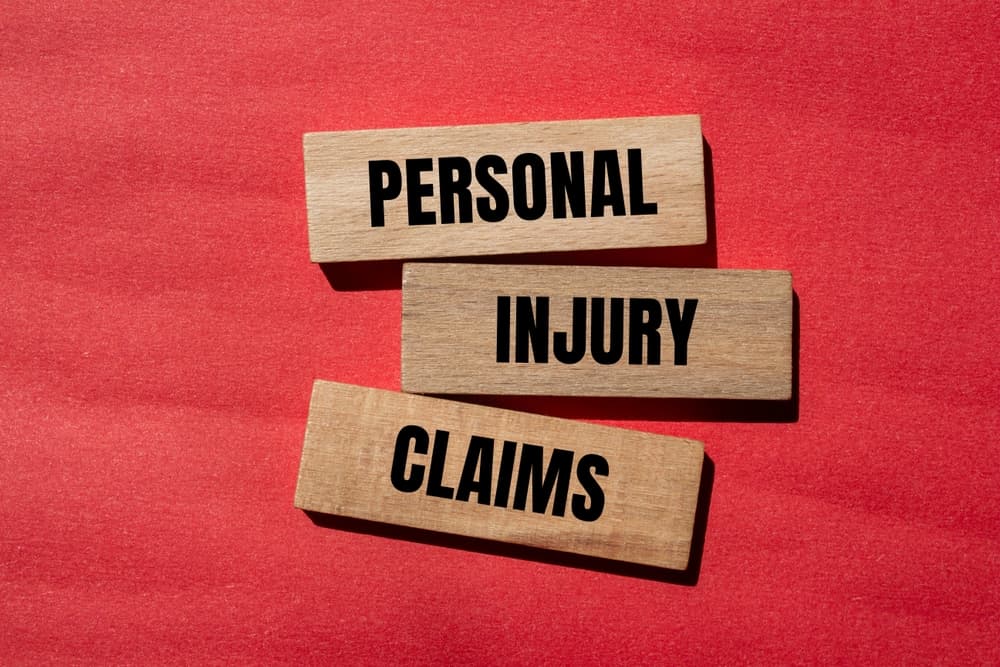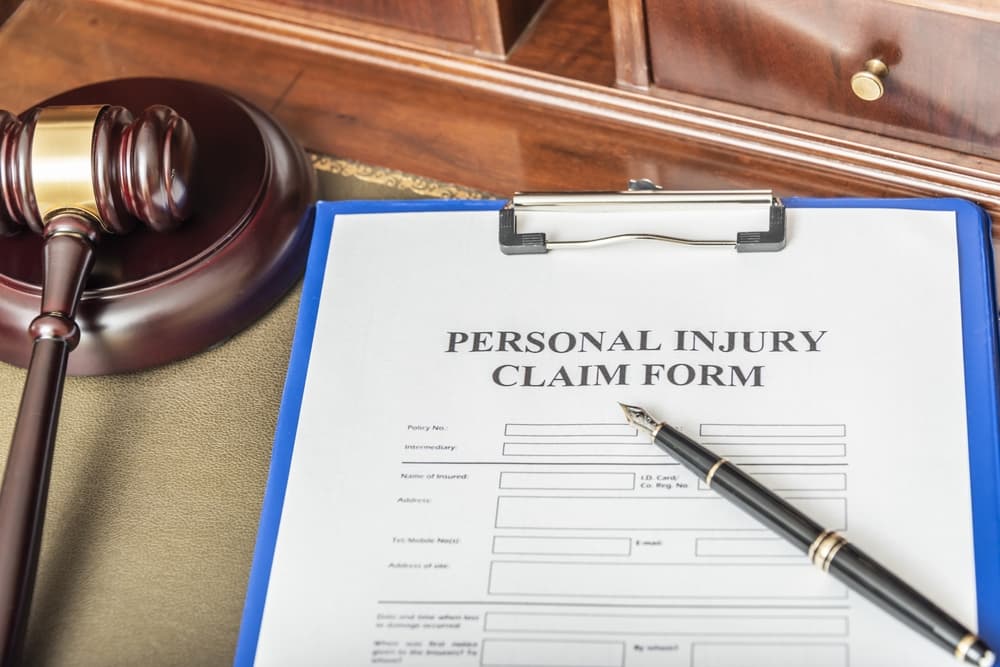Personal injury victims and their families often wonder how long it will take to receive an offer of compensation for their injuries. While every case is unique and the timeline can vary, certain factors can influence the length of time it takes to reach a settlement. Below are some of the different stages of the compensation process and factors that can affect the timeline. Contact an experienced car accident lawyer at Blakeley Law Firm for more information about your case.
Reach Out Today!
Understanding the Complexity of Personal Injury Claims

Personal injury claims can be complex and involve various factors that impact the duration of the process. Each case is unique and influenced by several variables, including the severity of your injuries, the complexity of liability issues, the availability of evidence, and the negotiation skills of your legal representation. While we can't provide an exact timeframe for every situation, we can outline the general stages of a personal injury claim to understand the process better.
Factors Affecting the Personal Injury Compensation Timeline
When you have suffered an injury due to someone else's negligence, you might wonder how long it will take to receive compensation for your damages. While each personal injury case is unique, and the timeline can vary, several factors can affect the time it takes to reach a settlement or receive a jury verdict. Understanding these factors can help you manage your expectations and make informed decisions as you navigate the legal process.
Severity of Your Injuries
One of the most significant factors that can influence the personal injury compensation timeline is the severity of your injuries. Generally, the more severe your injuries, the longer it may take to resolve. This is because extensive injuries often require more medical treatment, rehabilitation, and ongoing care. You need to ensure that medical professionals adequately document your injuries and that your attorney has a complete understanding of the long-term impact your injuries may have on your life. This thorough documentation will help negotiate a fair settlement or present a compelling case to a jury, if necessary.
Complexity of Your Case
Another factor that can impact the timeline is the complexity of your case. Personal injury cases can range from straightforward to highly complex, depending on various factors such as multiple defendants, disputed liability, or complex legal issues. For example, cases involving product liability, medical malpractice, or toxic torts often require extensive investigation, expert testimony, and legal research. Resolving these complex cases can take longer than more straightforward cases. You must have an experienced personal injury attorney who understands the challenges of your case.
Cooperation of Other Parties and Insurance Companies
Additionally, the behavior and cooperation of the other party involved can affect the timeline. If the responsible party or their insurance company is uncooperative or disputes liability, it may prolong the resolution process. In some cases, the insurance company may employ delaying tactics or attempt to undervalue your claim. Your attorney will need to negotiate and advocate on your behalf to overcome these obstacles and ensure that you receive fair compensation.
Civil Court Schedule
The court's schedule and backlog can also impact the timeline. The availability of judges, the court's caseload, and the scheduling of hearings and trials can all contribute to delays in your case. While your attorney will work diligently to move your case forward, you should recognize that some delays may be beyond their control. However, an experienced attorney will have relationships with court personnel and a thorough understanding of the local legal system, which can help minimize unnecessary delays.
The timeline for receiving personal injury compensation can vary depending on several factors. The severity of your injuries, the complexity of your case, the behavior of the other party, and the court's schedule can all affect the timeline. By understanding these factors and working with an experienced personal injury attorney, you can confidently navigate the legal process and increase your chances of receiving the fair compensation you deserve.
Gathering Evidence and Establishing Liability
To obtain a favorable settlement, you need compelling evidence that clearly demonstrates the negligence or wrongdoing of the responsible party. It includes medical records, accident reports, witness statements, and other relevant documentation.
Gathering evidence and establishing liability can be time-consuming, as it often involves investigating the accident scene, collecting witness statements, obtaining medical records, and consulting experts. The thoroughness and accuracy of this process can directly impact the strength of the case and the likelihood of receiving a fair offer of compensation. Therefore, working closely with an experienced personal injury attorney skilled in gathering valuable evidence and building a strong case is in your best interest.
The Role of Medical Treatment and Recovery
In many personal injury cases, it is important to wait until the victim has reached maximum medical improvement, meaning they have fully recovered or have reached a stable condition, before seeking compensation.
The length of the victim's medical treatment and recovery can vary depending on the severity of their injuries. For example, someone with minor injuries may require only a few weeks of treatment, while someone with more severe injuries may require months or even years of medical attention. The timeline for receiving an offer of compensation may be delayed until the victim's injuries have been thoroughly assessed and their future medical needs have been determined. It ensures that any potential long-term effects or complications are taken into account during the negotiation process.
Negotiating with Insurance Companies

Negotiating with insurance companies is a crucial step in the process of receiving an offer of compensation. Insurance companies are known for their tactics in delaying and minimizing settlement offers, as their primary goal is to protect their own financial interests. It can result in lengthy negotiation processes that can further prolong the timeline of receiving an offer of compensation.
During the negotiation process, you need to have a skilled attorney who can effectively communicate with insurance adjusters and advocate for the victim's rights. Experienced lawyers understand the tactics used by insurance companies and can help ensure that the victim receives a fair and just settlement offer in a timely manner.
The Length of the Legal Process
The legal process involved in personal injury cases can also significantly impact the timeline of receiving an offer of compensation. This process typically includes several stages: lawsuit filing, discovery, mediation, and potentially a trial.
Filing a lawsuit initiates the legal proceedings and can add additional time to the overall timeline. Discovery involves exchanging information and evidence between both parties, which can be lengthy depending on the case's complexity. Mediation is a method of alternative dispute resolution that aims to settle outside of court, but this can also take time to schedule and complete. If the case proceeds to trial, the timeline can be further extended.
However, not all personal injury cases go to trial. Many cases are resolved through settlement negotiations before reaching the trial stage. Even still, personal injury claimants should be prepared for the possibility of a more extended legal process, as it can impact the timeline of receiving an offer of compensation.
Preparing a Strong Demand Package
One way to expedite the timeline of receiving an offer of compensation is by preparing a thorough and persuasive demand package. A demand package is a comprehensive document that outlines the victim's injuries, medical treatment, pain and suffering, and other damages.
A robust demand package should include all relevant medical records, bills, and other documentation supporting the victim's claim for compensation. It should also provide a detailed account of the impact the injuries have had on the victim's life, including emotional distress, loss of enjoyment of life, and any other non-economic damages.
By preparing a compelling demand package, victims and their attorneys can present a solid case to the insurance company, encouraging them to make an offer of compensation sooner rather than later. This is why you always want to work with an experienced personal injury lawyer who knows how to prepare and present this demand package effectively.
How the Statute of Limitations Impacts the Personal Injury Compensation Timeline
The statute of limitations is a legal deadline that determines the amount of time you have to file a personal injury lawsuit. Each state has its specific statute of limitations for different types of cases.
If you fail to file your lawsuit within the specified time frame, you may lose your right to seek compensation. As such, always consult an attorney as soon as possible after your injury to ensure that you do not miss any critical deadlines.
Not only does the statute of limitations impact when you must file your lawsuit, but it can also affect the overall timeline for resolving your case. Insurance companies are aware of the time constraints imposed by the statute of limitations, and they may use this knowledge to their advantage by delaying the claims process.
Insurance adjusters may drag their feet in investigating your claim or make lowball settlement offers to pressure you into accepting less than you deserve. With an experienced personal injury attorney on your side who can navigate the complex legal process and advocate for your rights, you won't fall for their tactics.
The statute of limitations is a critical factor that can impact the timeline for receiving compensation in a personal injury case. Be sure to consult an attorney as soon as possible after your injury to ensure that you are aware of your state's specific deadlines and have the best chance of securing a favorable outcome in your case.
Should You Accept a Settlement Offer or Go to Trial
When it comes to personal injury claims, determining whether to accept a settlement offer or pursue a trial can be critical. Your attorney will play a significant role in guiding you through this process. Still, you need to understand the factors involved to make an informed choice.
First, assess the strength of your case. Your attorney will evaluate the evidence, witness statements, and expert opinions to gauge the likelihood of success at trial. They will consider factors such as liability, the extent of your injuries, and the potential damages you may recover. This analysis will give you a realistic understanding of the strength of your case, which will help you make an informed decision.
Another important consideration is the potential timeline involved. Taking a case to trial can be lengthy, often involving months or even years of pre-trial preparations, discovery, and court proceedings. On the other hand, accepting a settlement offer can provide a quicker resolution, allowing you to move forward with your life. However, you will need to balance a settlement's expediency with the offer's fairness. Your attorney will negotiate to reach a settlement that adequately compensates you for your injuries and damages.
Remember, every case is unique, and what worked for someone else may not necessarily be your best course of action. Trust your attorney and engage in open communication to make an informed decision that maximizes your chances of receiving fair compensation for your injuries.
The Benefits of Working with an Experienced Personal Injury Lawyer
Dealing with the complex issues of a personal injury case can be overwhelming and time-consuming, especially while recovering from injuries. That is why working with an experienced personal injury lawyer is highly beneficial. An attorney with experience handling personal injury cases can help expedite the timeline of receiving an offer of compensation and maximize the amount received.

Experienced lawyers understand the intricacies of personal injury law and have the knowledge and resources to build a strong case. They can guide victims and their families through the legal process, handle all communication with insurance companies, negotiate on their behalf, and provide valuable advice at every step.
Furthermore, working with a lawyer demonstrates to insurance companies that the victim is serious about pursuing their rights and seeking fair compensation. It can often lead to faster and more favorable settlement offers, as insurance companies are more likely to take the claim seriously when professional legal representation is involved.
Maximize Your Injury Claim: Hire a Seasoned Personal Injury Attorney Today
The timeline of receiving an offer of compensation in a personal injury case can vary greatly depending on several key factors. By working with an experienced personal injury lawyer, victims can expedite the timeline and increase their chances of receiving a fair and just settlement offer. Reach out to a seasoned personal injury attorney today to schedule a no-obligation consultation.